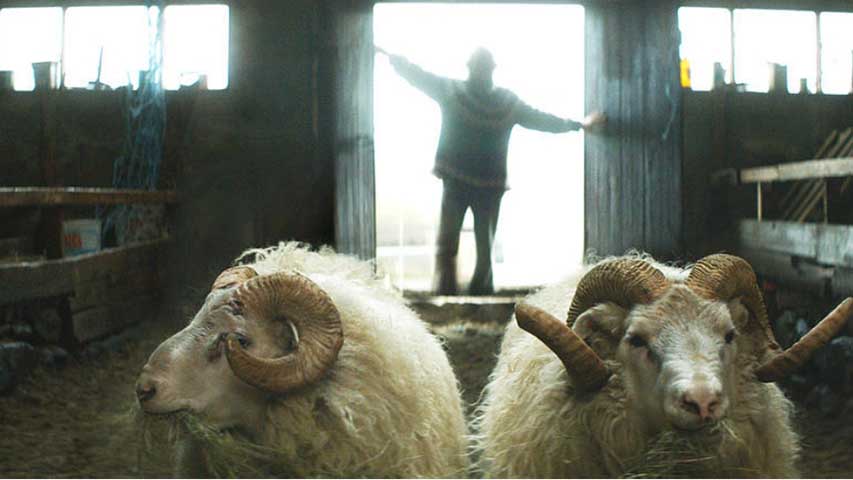
Rams (2015) / Drama-Comedy
aka HrutarMPAA Rated: R for language and brief graphic nudity
Running Time: 93 min.Cast: Sigurour Sigurjonsson, Theodor Juliusson, Charlotte Boving
Director: Grimur Hakonarson
Screenplay: Grimur Hakonarson
Review published March 25, 2016
 The
prize-winning Icelandic film Rams is a story featuring sheep
farmers in northern Iceland that, literally, contains rams, but could
also be seen as a metaphor for the stubborn head-butting that has gone on
for decades between the two main characters of the film, brothers
whose properties abut one another, but haven't really spoken to each
other for about 40 years. We mostly follow the film from the
perspective of mild-mannered Gummi (Sigurjonsson), who beams with
pride on his stock of sheep, entering his ram into a local competition
for the best example of good breeding. We see him narrowly
losing the latest competition to his neighbor, estranged alcoholic
and temperamental brother Kiddi (Juliusson), which leaves a bitter taste in
Gummi's mouth not only for the loss, but mooreover, it's a loss to the man he
most detests in this world.
The
prize-winning Icelandic film Rams is a story featuring sheep
farmers in northern Iceland that, literally, contains rams, but could
also be seen as a metaphor for the stubborn head-butting that has gone on
for decades between the two main characters of the film, brothers
whose properties abut one another, but haven't really spoken to each
other for about 40 years. We mostly follow the film from the
perspective of mild-mannered Gummi (Sigurjonsson), who beams with
pride on his stock of sheep, entering his ram into a local competition
for the best example of good breeding. We see him narrowly
losing the latest competition to his neighbor, estranged alcoholic
and temperamental brother Kiddi (Juliusson), which leaves a bitter taste in
Gummi's mouth not only for the loss, but mooreover, it's a loss to the man he
most detests in this world.